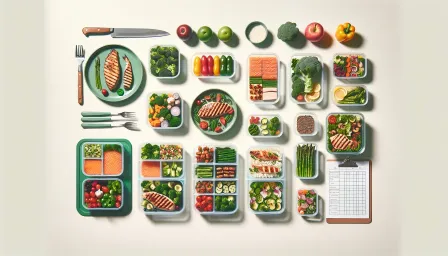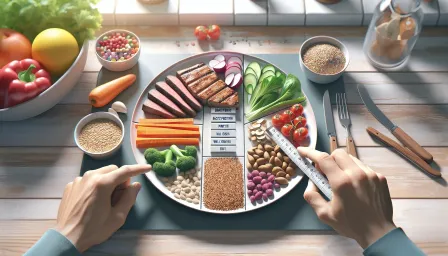Tracking Your Journey: The Ultimate Guide to Food Journaling and Progress Tracking

Discover the comprehensive guide to food journaling and progress tracking. Learn how to effectively monitor your dietary intake, achieve your health goals, and maintain progress over time.
Embarking on a health and wellness journey can often feel overwhelming. Whether your goal is to lose weight, manage a medical condition, or simply make healthier choices, keeping track of what you eat and your overall progress is crucial. In this ultimate guide to food journaling and progress tracking, we will explore the benefits, methods, and tools to help you stay on track and achieve your goals.
The Importance of Food Journaling and Progress Tracking
Food journaling and progress tracking are fundamental tools for anyone serious about improving their health. By keeping a detailed record of your dietary intake and monitoring your progress, you can:
- Identify and address unhealthy eating habits
- Ensure you're meeting nutritional needs
- Track progress towards health goals.
- Enhance accountability and motivation
- Provide valuable insights for healthcare providers
Getting Started with Food Journaling
Choosing the Right Journal
When starting a food journal, selecting a method that works best for you is essential. Options include traditional paper journals, digital spreadsheets, or mobile apps designed for food tracking. Consider convenience, ease of use, and how detailed you want your entries to be.
What to Record
A comprehensive food journal typically includes:
- All food and drink consumed: Record everything you eat and drink, including portions and ingredients.
- Timing: Note the time of day for each entry to identify patterns (e.g., late-night snacking).
- Emotional state: Document how you feel before and after eating to identify emotional eating triggers.
- Physical symptoms: Track any symptoms such as bloating, energy levels, or headaches that may be related to your diet.
Best Practices for Effective Food Journaling
- Be Honest and Consistent: Accuracy is key. Record all foods, even if they seem insignificant.
- Update Regularly: Log entries as soon as possible to avoid forgetting details.
- Review and Reflect: Regularly review your journal to identify trends and areas for improvement.
Progress Tracking for Success
Setting Realistic Goals
Establishing clear, realistic goals is essential for effective progress tracking. Use the SMART criteria—Specific, Measurable, Achievable, Relevant, Time-bound—to set actionable objectives.
Methods of Tracking Progress
- Weight and Measurements: Regularly record your weight and body measurements.
- Photographic Records: Take progress photos to visually track changes over time.
- Performance Metrics: Monitor improvements in fitness levels, such as increased stamina or strength.
- Health Indicators: Track key health metrics, such as blood pressure levels, blood sugar, or cholesterol.
Tools and Technologies
Modern technology offers a variety of tools to help you track your journey:
- Mobile Apps: Popular apps like MyFitnessPal and Lose It! offer user-friendly interfaces for food journaling and progress tracking.
- Wearable Devices: Fitness trackers and smartwatches can provide real-time data on physical activity and other health metrics.
- Online Communities: Engaging with online forums and support groups can provide additional motivation and accountability.
Overcoming Challenges
Staying consistent with food journaling and progress tracking can be challenging. Here are some tips to help you stay on course:
Time Management
Set aside dedicated time each day to update your journal and track progress. This can be as short as five minutes, but consistency is key.
Dealing with Setbacks
It's natural to encounter setbacks. Instead of getting discouraged, use them as learning experiences to refine your approach and continue moving forward.
Staying Motivated
Celebrate small wins and milestones. Reflect on your progress to understand how far you’ve come and stay motivated for the journey ahead.
Consulting with Professionals
For those with specific health conditions or complex goals, consulting with professionals such as nutritionists, dietitians, or personal trainers can provide personalized guidance and support.
Conclusion
Food journaling and progress tracking are powerful tools that can significantly enhance your health and wellness journey. By understanding the importance, employing best practices, and utilizing modern tools, you can effectively monitor your dietary intake, achieve your health goals, and maintain progress over time. Remember, consistency and honesty are your allies in this journey. If you stay dedicated, you'll find that tracking your journey is not just beneficial, but also deeply rewarding.



























